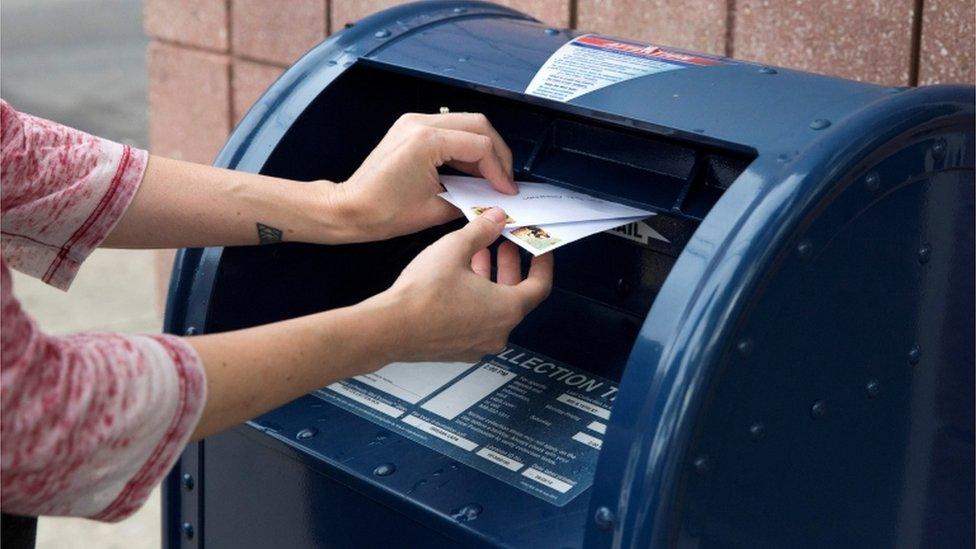US Postal Service: House backs election cash boost
- Published
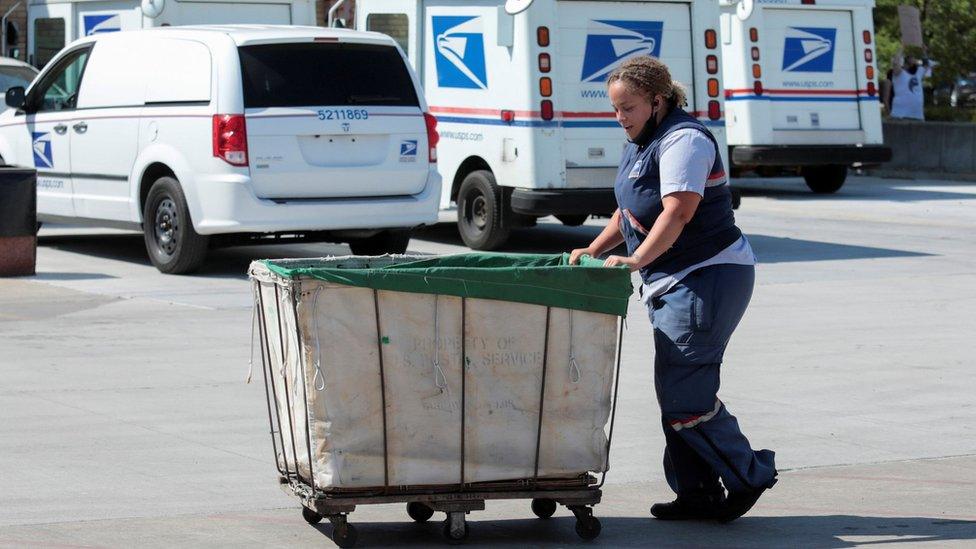
The US Postal Service delivered 142.6 billion pieces of mail in 2019
The US House of Representatives has passed a bill that would inject $25bn (£19bn) into the Postal Service (USPS) ahead of November's election.
The legislation would also block cuts and changes that critics have said will hamper mail-in voting.
Democratic Speaker Nancy Pelosi recalled lawmakers from the summer recess to vote on the bill, which she said would protect the USPS.
After the vote, President Trump tweeted the measure was a Democrat ballot scam.
"Representatives of the Post Office have repeatedly stated that they DO NOT NEED MONEY, and will not make changes, " said Donald Trump. He has threatened to veto the bill, which is in any case unlikely to make progress in the Republican-controlled Senate.
Allow X content?
This article contains content provided by X. We ask for your permission before anything is loaded, as they may be using cookies and other technologies. You may want to read X’s cookie policy, external and privacy policy, external before accepting. To view this content choose ‘accept and continue’.

Senate majority leader Mitch McConnell said the chamber would "absolutely not pass" the bill.
Postmaster General Louis DeJoy said earlier that further cost-cutting measures at the postal service would be suspended until after November's vote.
A slowdown in mail deliveries amid cost-saving measures at USPS has fuelled fears about how one of the oldest and most trusted institutions in the US can handle an unprecedented influx of mail-in ballots due to the coronavirus pandemic.
President Trump strongly opposes mail-in ballots and has repeatedly suggested it could lead to widespread voter fraud despite there being no evidence for this.
The "Delivering for America Act, external" passed by the House in a rare Saturday sitting includes $25bn of emergency coronavirus funding requested by the USPS's board of governors.
More than a dozen Republicans crossed the floor to vote with their Democratic opponents.
The bill would require the USPS to treat all official election correspondence as first-class mail.
The service would be prohibited until January 2021 from implementing or approving any changes to operations or service levels that would "impede prompt, reliable, and efficient service", including closing or reducing the hours of post offices, removing mail sorting machines and mailboxes, or stopping overtime payments.
"This is not a partisan issue," Democratic Representative Carolyn Maloney, the bill's author, said before the debate. "It makes absolutely no sense to impose these kinds of dangerous cuts in the middle of a pandemic and just months before the elections in November."
Allow X content?
This article contains content provided by X. We ask for your permission before anything is loaded, as they may be using cookies and other technologies. You may want to read X’s cookie policy, external and privacy policy, external before accepting. To view this content choose ‘accept and continue’.

Ms Pelosi stressed that the USPS was not a business.
"While we always want to subject every federal dollar to the scrutiny of what we're getting for it, let us remember that it is a service. No business that I can think of would ever be saddled with what we've done to the Postal Service," she added.
Republican political leaders on Friday said Democrats had "sought to spread baseless conspiracy theories about the USPS for political gain", external and had "manufactured a crisis to undermine President Trump at the expense of America's institutions".
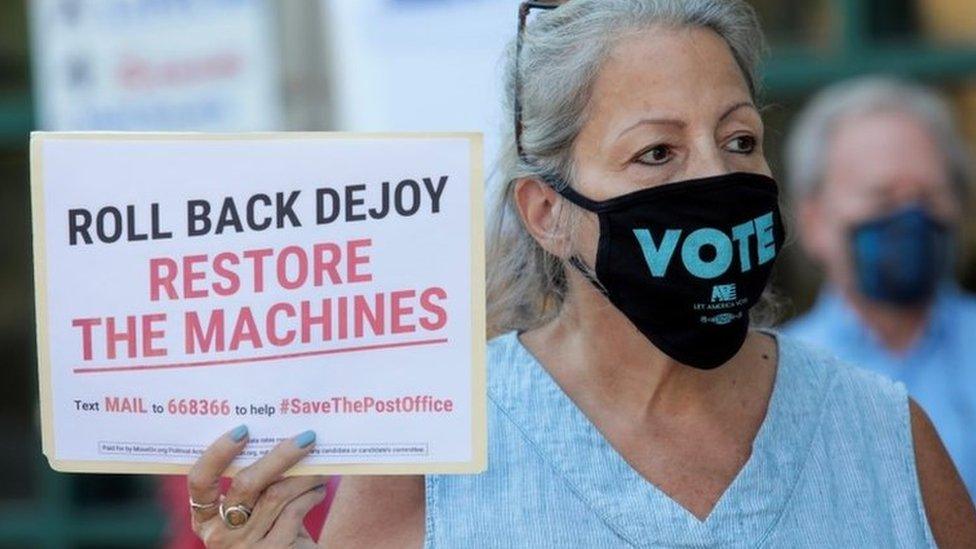
Democrats and their supporters say the cost-cutting measures will hamper mail-in voting
They also condemned Democrats for pursuing for what they said was "an unnecessary bailout plan that does not fix any of the underlying operational issues".
On Friday, the postmaster general told a Senate committee there had been "no changes to any policies with regard to election mail" and that the USPS was "fully capable and committed to delivering the nation's election mail fully and on time".
Mr DeJoy - a top Republican donor and former logistics executive appointed to lead the agency in May - acknowledged that the changes he had instigated had slowed some mail delivery, but insisted that it was "outrageous" to suggest they were intended to help President Trump in November.
- Published21 August 2020
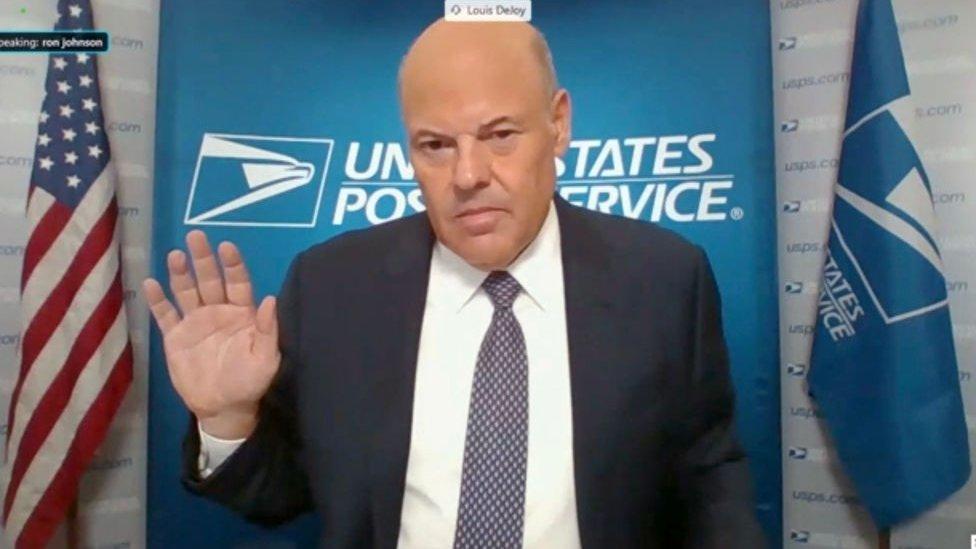
- Published18 August 2020
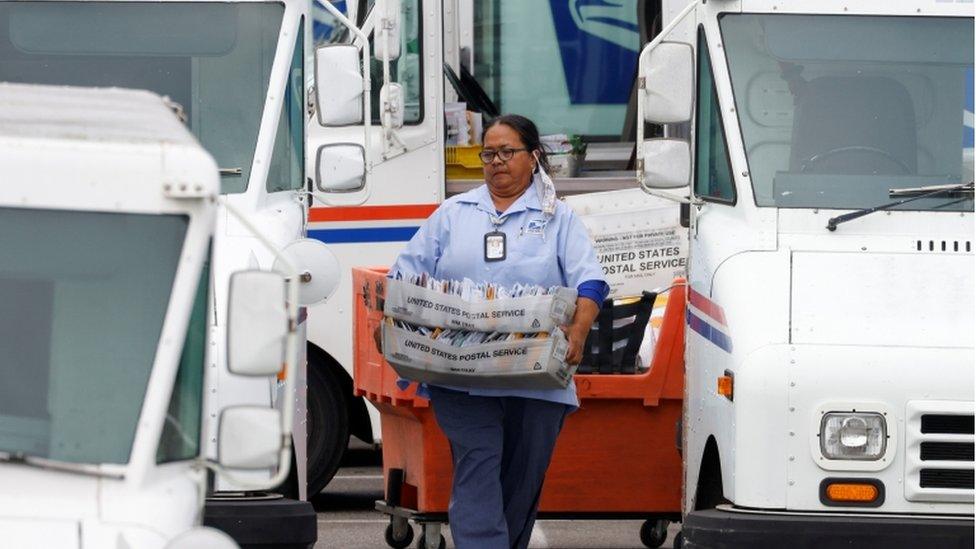
- Published19 August 2020
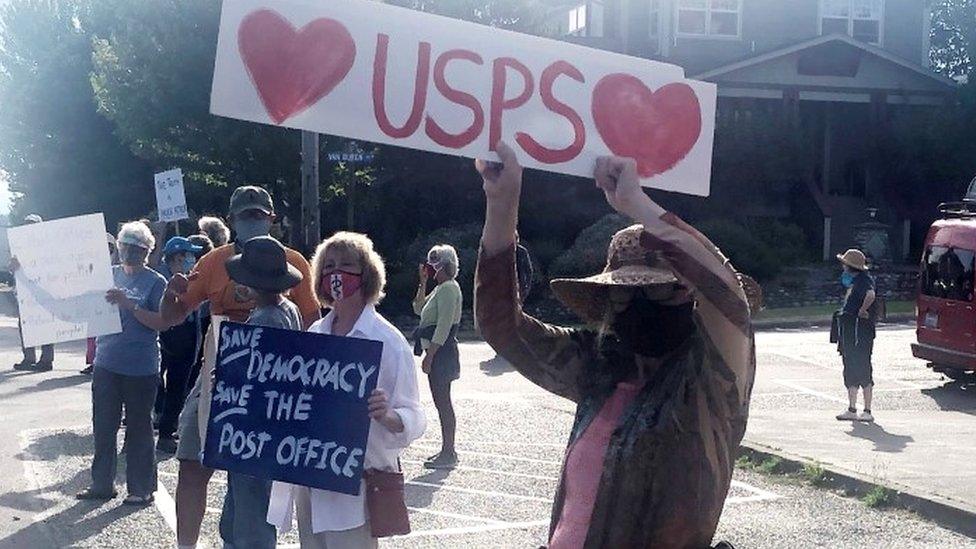
- Published17 August 2020
